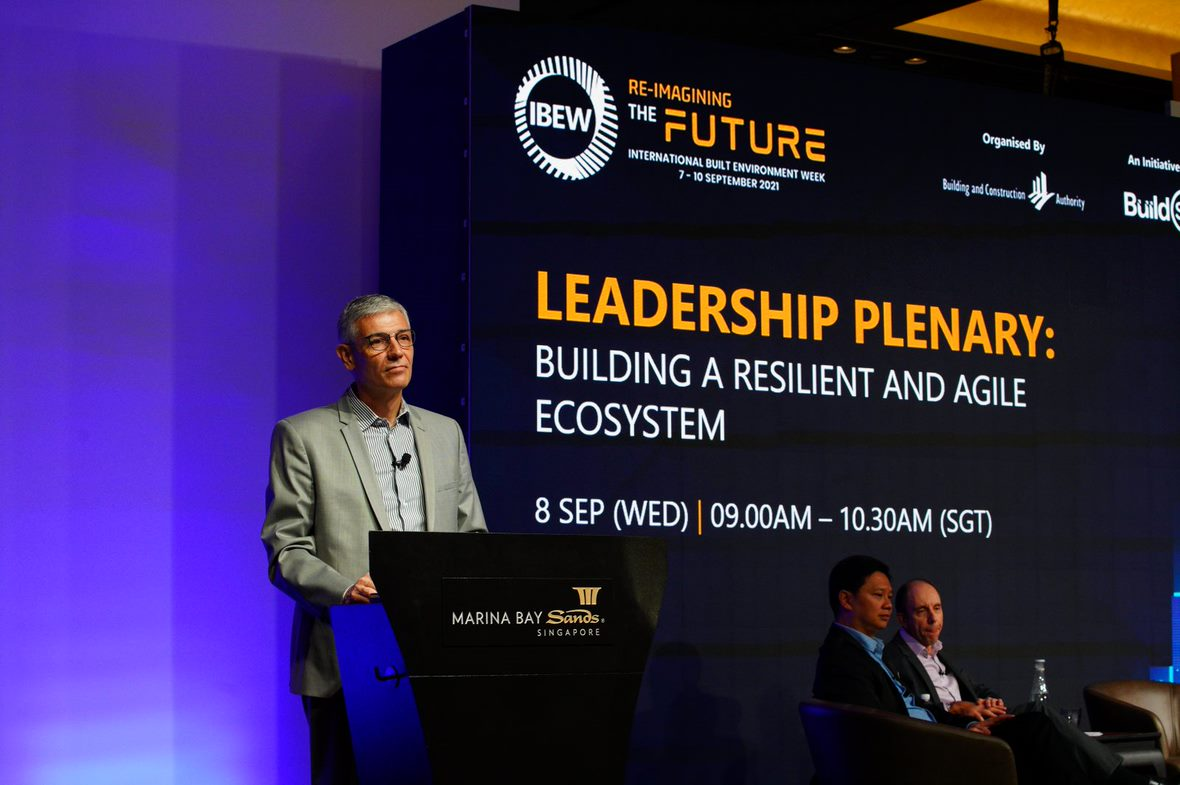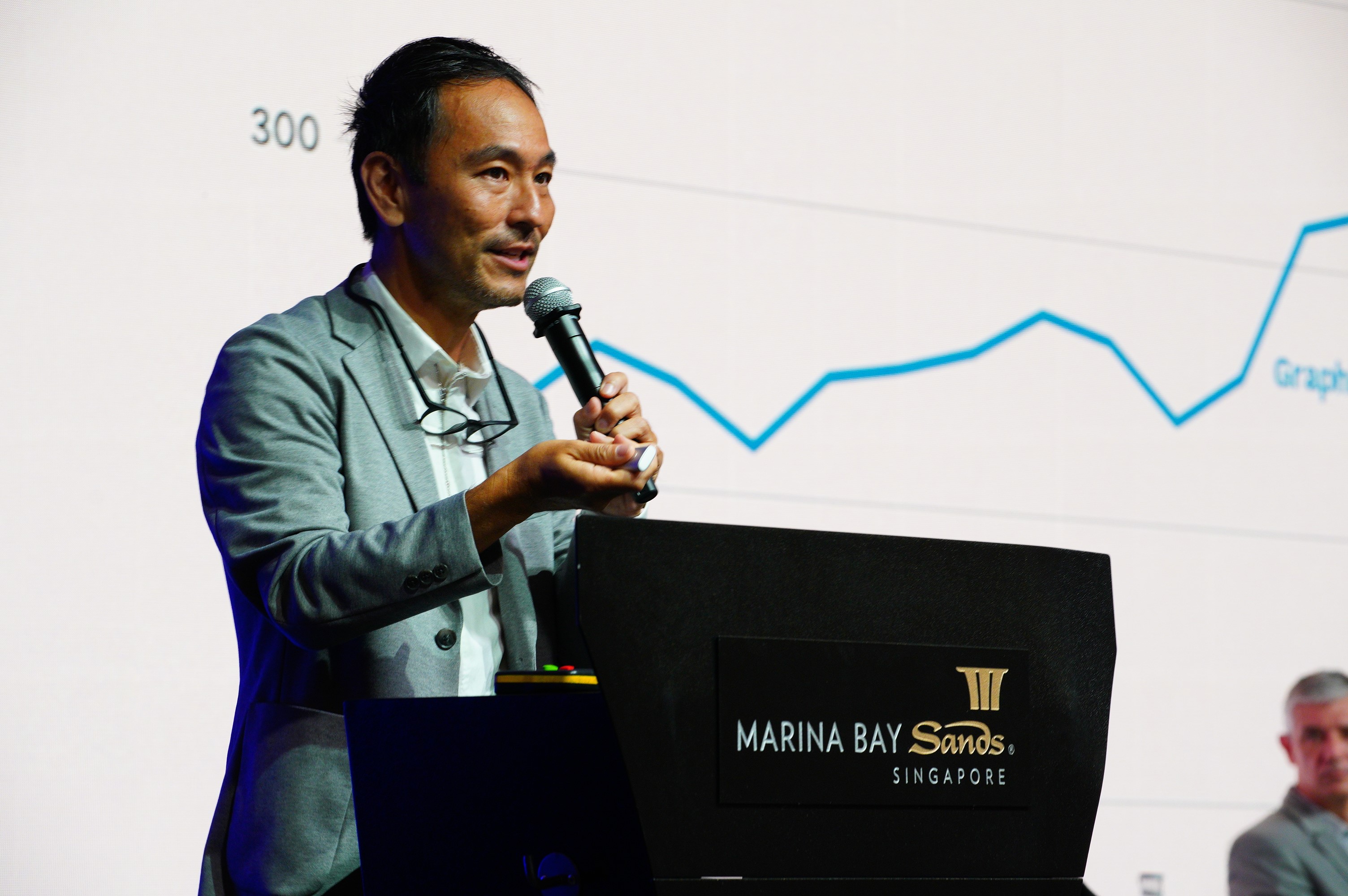Eighteen months after COVID-19 first hit Singapore, the Built Environment (BE) sector is seeking opportunities in a crisis that has led to rising costs and delays in construction projects.
“COVID-19 has exposed many of our vulnerabilities and highlighted the importance in building an agile and resilient BE industry,” said Mr Neo Choon Keong, Deputy Chief Executive Officer for Industry Development at the Building and Construction Authority (BCA).
Mr Neo, who was speaking at a leadership plenary session on the second day of the International Built Environment Week (IBEW), cited three factors that have impacted the sector.
First, as the city-state imports almost all of its construction materials, the disrupted global supply chain has been dire. Second, as a price taker because of its small market size, Singapore has to further contend with escalating prices of materials. Third, ongoing border restrictions have resulted in a manpower shortage of migrant construction workers.
We have to be resilient. We can transform challenges into opportunities, and the opportunities are plenty
- Mr Franck Lombard
To counter these issues, panellists comprising corporate leaders in the BE sector shared insights on how organisations can adapt to the changes wrought by the pandemic – with the right technology and talent.
In fact, COVID-19 has signalled that it is time to be more proactive in using robotics and digital tools to address the disruption issues that Singapore is currently facing, noted Mr Franck Lombard, Managing Director at construction firm Dragages Singapore.
“We have to be resilient. We can transform challenges into opportunities, and the opportunities are plenty,” he said.
|
|
 Mr Franck Lombard, Managing Director at construction firm Dragages Singapore Mr Franck Lombard, Managing Director at construction firm Dragages Singapore
|
|
The Digitalisation Charge
One opportunity resulting from the pandemic is the acceleration of digitalisation, shared Ar Ong Tze Boon, Group Executive Chairman at architecture firm Ong & Ong.
Citing the rise of Zoom meetings and virtual conferences like the IBEW as examples, he said: “Digital is changing everything – it’s changing our lives.”
|
|
 Ar Ong Tze Boon, Group Executive Chairman, Ong & Ong Ar Ong Tze Boon, Group Executive Chairman, Ong & Ong
|
|
For the BE sector, digitalisation can be done with the creation of hybrid spaces. The concept – a merger of the digital and physical space – integrates digitally-enabled services, products and experiences into built environments. This can enhance or even transform the way an area is understood.
Tapping on Technology and Talent
To seize these new opportunities, two things will be vital: technology and talent.
First, technology will be essential to increase productivity and reduce cost reduction, said Mr Lombard, who pointed out that it will allow industry stakeholders to build smarter and more efficiently.
One example he raised was Singapore’s implementation of the Integrated Digital Delivery (IDD) concept. Digital tools are used across the entire construction chain, ranging from design and fabrication to transport and installation.
Going digital has led to multiple benefits. “It can be used to collect information, make it readily available and easier to share. It is also a good way to streamline processes,” he added.
But to harness these technologies, the right talent will also be needed. “Our whole industry, irrespective of the technology we bring in and utilise, will fundamentally come back to the level of talent that we can bring to our industry,” said Mr David Hutton, Group Head of Development at real estate and investment group Lendlease Asia Holdings.
This topic of talent was, in fact, central to the discussion by the panellists. It followed an observation from an audience member who said the BE sector has seen high turnover in consultancy firms, with many of the younger staff leaving.
It prompted panel moderator, Professor Annie Koh, Professor Emeritus of Finance at the Singapore Management University, to pose two questions to the panellists: How can the BE sector attract more young people, and what is the purpose and value that makes them want to be part of the sector?
In response, Mr Neo said two trends could increase the attractiveness of the BE sector. The first is to reinvent the careers, with digitalisation being a key driver of this change. The second is to highlight the meaningful purpose of working in the BE sector such as improving the liveability of cities and quality of lives.
Passion will also be key, emphasised Mr Lombard. “What is wonderful about this sector is that we start from scratch and create something,” he said.
“I’m very confident that thanks to digitalisation and new opportunities, we’ll bring in new job positions in the market. I’m very confident that we’ll be able to attract new talents.”
Those joining the sector can look forward to a challenging yet exciting career, as BE professionals will have to create liveable spaces that enable people to still enjoy their cities and communities amid the pandemic.
“What COVID-19 has taught us is that there’s a real desire to experience our cities and communities,” noted Mr Hutton.
“I’ve yet to find anyone in the world who wants to be in lockdown. We want to get out, enjoy the built environment and participate in our cities.”